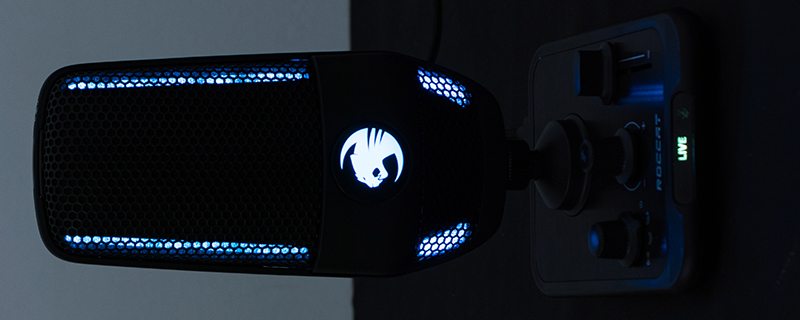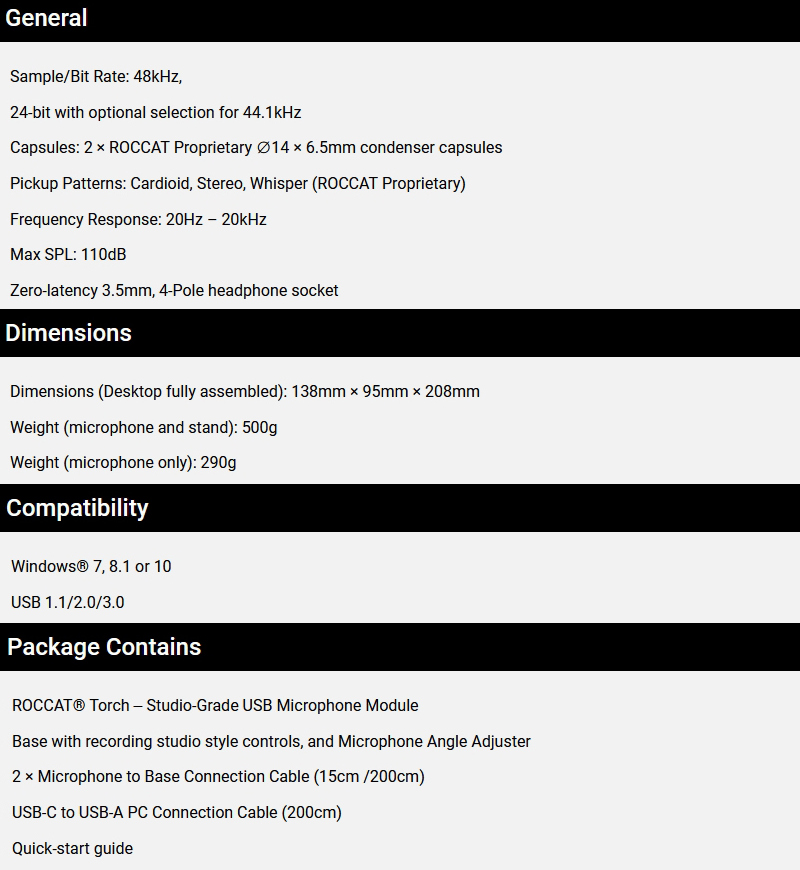Roccat Torch Microphone Review
Introduction
If there is one thing that lockdown brought us, that isn’t one of the obvious things, it was a world shortage in microphones.
Suddenly everyone at home with nothing better to do found themselves needing microphones for streaming, or zoom calls, or checking in with friends and family. Additionally a lot of channels that were dedicated to videos needed live content. Judging from the content we consume the value of Rode must have doubled overnight given how many we saw in the corner of nearly every video.
That’s all well and good but many of us haven’t got the necessary XLR hardware available to plug in an expensive microphone, or perhaps we just have no need for a high end model and instead want to dip our toes into the streaming waters without busting the bank. In the USB world there are a few models available, and the latest is from Roccat with their Torch. A microphone which has three pickup patterns, onboard gain adjustment and zero latency monitoring, and a very low price tag.
Is it good enough to get you on the streaming ladder? Let’s find out.
Technical Specifications
Most of us are familiar with the specifications and their meaning on headphones and speakers, but microphones have a slightly different set of important elements. The condenser capsules are the actual microphone part of it. Here we have two 14mm capsules, much smaller than one would expect from the aforementioned Rode or similar brand, but close to those of most similarly priced USB microphones. The Elgato Wave 3 for example has a single 17mm capsule. The sample rate is on the low side at just 48kHz but the frequency response is well above any headset microphone with a full 20Hz to 20kHz range.
SPL is how loud a microphone can handle without distortion. Naturally you want this as high as possible to give you the most headroom and thus the cleanest audio. A Rode will be around 148dB, the Wave 3 runs at 120dB, whereas the Torch tops at 110dB. Still more than enough for vocal work, but if you want to use it for instrument capture or similar then be aware it has a low ceiling. Enough rambling though, let’s see it in the flesh.




